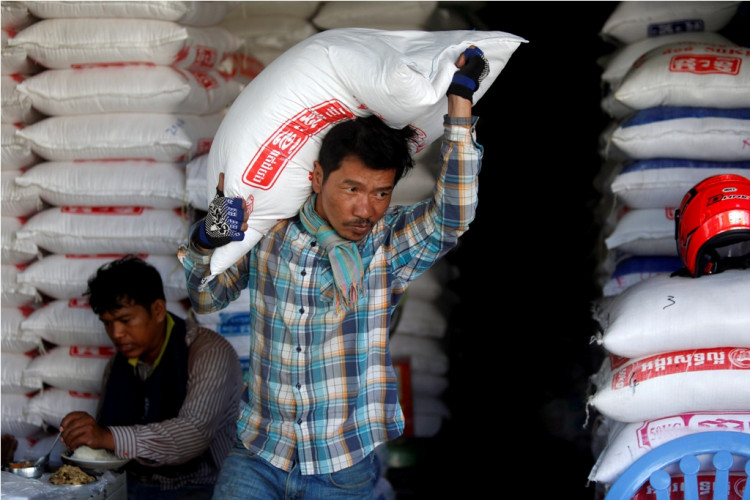In collaboration with Cambodian organic cooperative Reaksmey Lekkompos Kaksekor, international nonprofit organization Oxfam has completed the first rice shipment to the Netherlands last month with the help of blockchain technology.
Through the pilot project called BlocRice, a "smart" contract was developed to help Cambodia's poor rice farmers to track developments in their deal with an exporter. BlocRice is the tool that creates a database that farmers and participants in the project can access.
Aside from getting details about the deal through the blockchain system, farmers can also have a better chance of negotiating the price of their products. The BlocRice application can be accessed by Cambodian rice farmers through a smart phone.
While BlocRice has already helped some of Cambodia's rice farmers have access to a network that they could use for negotiating better prices, Oxfam said there is still a need to narrow the huge technological gap. Most farmers don't own smart phones.
The BlocRice project was established to help empower Cambodia's rice farmers as they strive to alleviate themselves from poverty. The initiative is still under testing and much work needs to be done for target goals to be achieved, Oxfam noted.
On the other hand, industry analysts said blockchain technology initiatives can actually help rice growers in Cambodia connect with sure buyers who pay fairly and are open to negotiating prices.
Blockchain technology has already gained momentum in other sectors in Cambodia, particularly in finance. Earlier this month, the National Bank of Cambodia (NBC) announced that it will integrate the technology in its payment system this year.
According to a World Economic Forum (WEF) report, the blockchain-based payment system that Cambodia will use can operate commercial and private accounts. This allows for citizens and businesspeople alike to benefit from the improved services.
Analysts are expecting to see more people in the agriculture industry expressing interest in the technology as other sectors in Cambodia push for innovation and reforms that should better benefit citizens.
This month, China's General Administration of Customs released the list of banana plantations in Cambodia which have been approved to deliver bananas to the Chinese market.
With trade opportunities being opened for Cambodia's agriculture sector, industry experts said the government and organizations should help promote technology as a means of improving the experience of Cambodian farmers and their target markets.
Oxfam spearheaded the BlocRice in November last year and is looking to expand its reach to around 5,000 rice farms in Cambodia by 2022. The main goal is to help poor farmers improve their supply conditions and overall livelihood.






